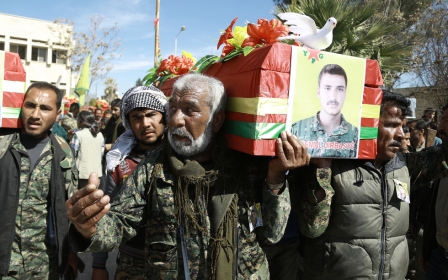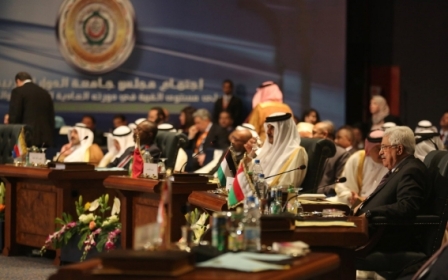Arab League chief says Syria's Assad can run for president again
Syrian President Bashar al-Assad could stay in power and run in future elections, the secretary general of the Arab League has said in an interview on Egyptian TV.
In an interview with Egyptian journalist Ahmed Moussa, Ahmed Aboul Gheit, a former Egyptian foreign minister, said: “There is no problem if the Syrian people choose Bashar al-Assad as president in future elections.”
The diplomat said: “If the people elect him he can run in the elections, but first there has to be a ceasefire, (and) there has to be acceptance of his presence in the conciliation framework, because there is the possibility that groups will refuse to work with him.
“The issue has to be handed over to the Syrians, opposition and government, excluding of course the terrorist groups, and we’ll see what happens. This all will take time. How much time? I do not know.”
The comments by Aboul Gheit mark a major departure with Arab and Western powers who have repeatedly called on the embattled Syrian leader to step down.
The interview follows an official visit last month to Egypt by Syria's intelligence chief, and Cairo's vote in favour of a UN Security Council resolution drafted by Assad ally Russia on halting violence in Syria.
Aboul Gheit served as Egypt's foreign minister under former Egyptian president Hosni Mubarak between 2004 and 2011, and was elected secretary general of the Arab League in 2016.
He replaced Nabil el-Araby, who very briefly succeeded Aboul Gheit as Egyptian foreign minister in 2011.
He said there was no military solution to the conflict. “For one of the sides to try to resolve the situation military is a fantasy,” he said. “because the situation will be not be solved military neither in Syria... It is not possible.”
He advocated a unity government comprised of the government and opposition, and ruled out the possibility of a no-fly zone, saying Russia controls the skies in Syria and would not allow such a move.
Aboul Gheit maintained than the Arab League is not in contact with the Assad government, which was suspended in November 2011 in response to its repression of the Syrian revolution.
Harsh words for Turkey
But the diplomat had harsh words for Turkey, accusing it of allowing thousands of Western youth to travel and fight in Syria and Iraq, and allowing IS to raise revenue from smuggling oil across the Turkish border.
He also accused Ankara of facilitating the growth of IS to bring down the Assad regime, oblivious to the dangers of the extremist group and their Western fighters turning on them.
In 2012, as peaceful protests gave way to civil war, the Arab League called on Assad to step down.
Seven of the eight Arab League secretary generals in the Arab League's history have been Egyptians, the Arab world's most populous country.
Aboul Gheit accused the Kurds of using the fight against the Islamic State (IS) group to expand the land under their control. While predicting IS’s military defeat in the near future, he warned that extremist thought had spread across the Middle East and could remain for years to come.
Aboul Gheit also expressed his frustrations over the increasingly frequent boasting from Iran that it holds sway over four Arab capitals: Baghdad, Beirut, Damascus, and Sanaa.
He said Tehran’s pronouncements “are a constant source of annoyance.”
New MEE newsletter: Jerusalem Dispatch
Sign up to get the latest insights and analysis on Israel-Palestine, alongside Turkey Unpacked and other MEE newsletters
Middle East Eye delivers independent and unrivalled coverage and analysis of the Middle East, North Africa and beyond. To learn more about republishing this content and the associated fees, please fill out this form. More about MEE can be found here.




